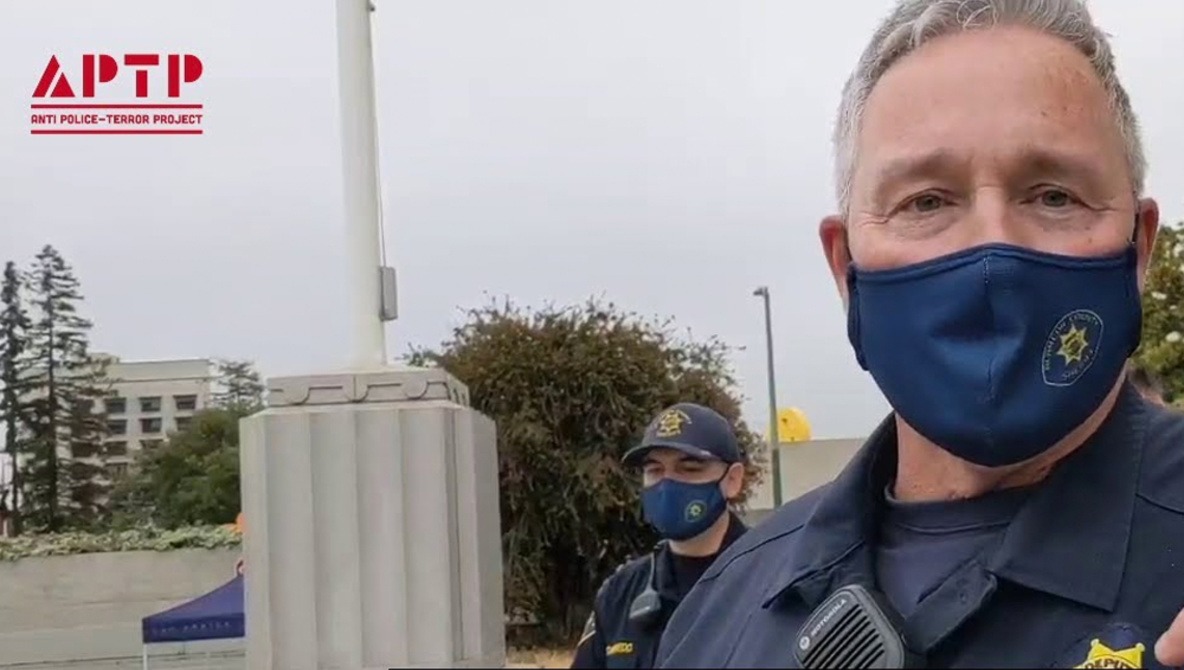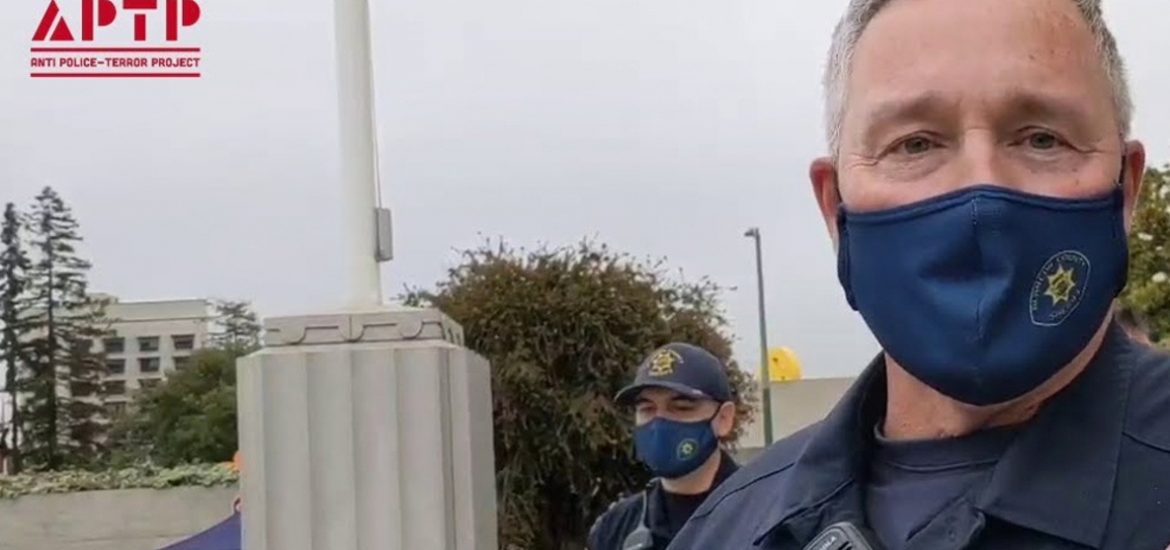
We have seen plenty of examples of police challenging or violating citizens’ First Amendment right to record their activities in public, but now, they are turning to a new trick to prevent the dissemination of recordings.
In a video posted by Anti Police-Terror Project, a James Burch, policy director of the organization, is standing outside the Alameda Courthouse in Oakland, California in support of the family of Steven Taylor, when he is approached by a police sergeant who asks him to move a banner. In the course of the confrontation, the sergeant pulls out his phone, turns on “Blank Space” by Taylor Swift, and puts it in his pocket, a seemingly strange thing to do given the circumstances.
However, the officer follows it by saying: “You can record all you want. I just know it can’t be posted to YouTube.” This indicates that the officer is attempting to exploit YouTube’s takedown algorithm, which detects copyrighted music and takes various enforcement actions that range from demonetizing the video to blocking it from the platform completely. There is generally nothing wrong with incidental music in the background of a video, but as anyone who has encountered YouTube’s automatic takedown algorithm will tell you, it can be very aggressive and will often flag videos for even slight infractions, accidental or not. Of course, it is the First Amendment right of any citizen to record police (or anyone) in public, and such a counter-tactic is likely not inherently illegal, though its intent is clearly to circumvent some of the effects of that First Amendment right, namely the ability to efficiently disseminate recordings.
This is not the first time police have used such a tactic, but it does appear to be the first time an officer has directly admitted to it on camera.
